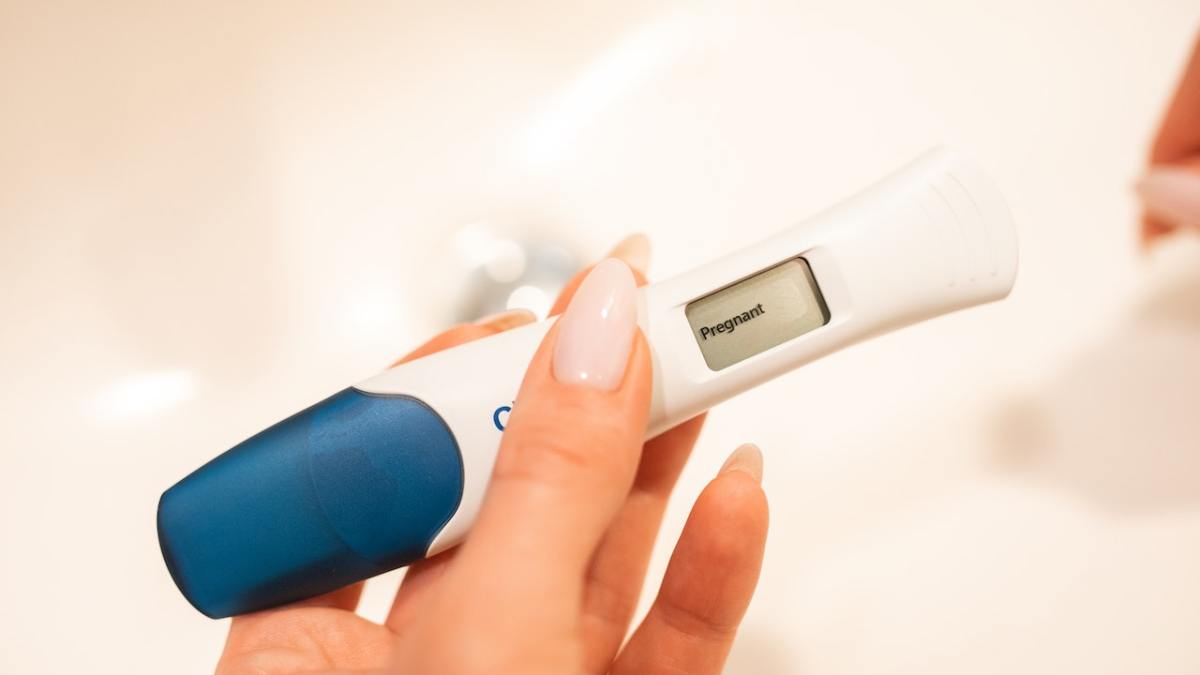Most pregnancy tests claim to be up to 99% accurate, but reaching this level requires conditions that users must observe, and there are reasons that may reduce the efficiency of the test.
Women usually resort to pregnancy tests when their periods are delayed, and the unexpected results of the examination may pose many questions, why is the period delayed if pregnancy does not prevent it? Why are there pregnancy symptoms despite the negative sample? And does a pregnancy test get it wrong?
A few days delayed doesn't necessarily mean you get pregnant (Pixels)
Delayed menstruation
The menstrual cycle may be delayed for several reasons, but pregnancy is not the only explanation, according to the "National Health Service in Britain" (NHS), there are a number of reasons for the delay of the menstrual cycle and this factor is not considered as a real indicator of pregnancy, including:
- Stress
- Sudden weight loss
- Weight gain
- Do a lot of exercise
- Taking birth control pills
- menopause
- PCOS
- Other medical conditions such as heart disease, diabetes, hyperthyroidism or early menopause
How accurate are home pregnancy tests?
Pregnancy tests work to look for the pregnancy hormone hCG or the so-called chorionic gonadotropin, which is produced by the body after implanting a fertilized egg in the uterus, and its levels in the blood and urine increase during the first trimester of pregnancy. However, these tests are not 100% accurate and may lead to false results, either positively or negatively.
Many home pregnancy tests claim to be 99 percent accurate, but home pregnancy tests differ in their ability to detect pregnancy in women who have recently missed their periods. Mayo Clinic advises women who experience symptoms of pregnancy and at the same time get a negative test result to get another test a week after missing their period or go to the doctor for other tests.
For most home pregnancy tests, the end of the test is placed in the urethra, the test is dipped in a container with urine or several drops of urine are placed in the test, and after a few minutes the result is shown.
Many home pregnancy tests claim to be 99% accurate (Pixaby)
Pregnancy.. But the test results are negative
Despite the presence of signs of pregnancy, the test results may come back negative, the Health Line website mentions a number of reasons why pregnancy test results are negative despite the presence of a real pregnancy, including:
Take the test early in pregnancy
With a pregnancy test done early within a day or two of delayed periods, the level of pregnancy hormone is low and doesn't show up on the test. It is preferable to wait and take the test within two weeks of the delayed period.
Diluted sample
Diluted urine may give false negative results, so it's best to use the first morning urine for testing, as it should contain the highest concentration of pregnancy hormone. Drinking plenty of water before the test or even the night before may dilute urine and reduce the level of pregnancy hormone below the detectable limit.
Abuse
Although most home pregnancy test kits follow similar methods to detect pregnancy, it's always best to read the instructions carefully before getting tested. Failure to follow the instructions may result in errors in the results.
Defective tests
The test kit used may be defective due to manufacturing defects or improper processing and storage. In addition, they may be expired and give false results.
Rare cases
There are some less common possibilities that can lead to a false negative result on a pregnancy test, including:
- Ectopic pregnancy
- Hidden pregnancy, which is very rare where there is a hidden pregnancy that has not been detected by traditional pregnancy tests, and arises due to a sharp fluctuation in hormones.
- Late pregnancy, when urine or other samples contain high levels of pregnancy hormone, instead of giving a positive result gives a false negative result. This condition is called the hook effect and can occur when pregnancy is more than a few weeks.
Signs of pregnancy
A delayed period of a few days does not always mean that there is a pregnancy, but this possibility becomes stronger in conjunction with some of the most common symptoms of pregnancy, including, according to the site "Baby Centre" (Baby Centre»:
Your period can be delayed for a number of reasons including stress (Pixaby)
Delayed menstruation
Your period can be delayed for a number of reasons, including stress, weight gain or loss, PCOS and, of course, pregnancy.
Breast pain
With pregnancy, the breast may become more sensitive than normal, and more swollen and painful.
Cramps or bloating
Abdominal cramps or bloating are also a common sign of pregnancy.
Fatigue and exhaustion
Fatigue is a classic menstrual syndrome, however, feeling tired and tired with delayed periods is sometimes associated with pregnancy.
Morning sickness
If morning sickness recurs, without association with contaminated food can be a sign of pregnancy.
Frequent urination
Women in the early stages of pregnancy often need to urinate a lot because of pregnancy hormones.
Tips for finer results
If some pregnancy symptoms coincide with a delayed period of several days, a pregnancy test is recommended. To get the most accurate result on a home pregnancy test, Insider advises taking a number of measures, including:

